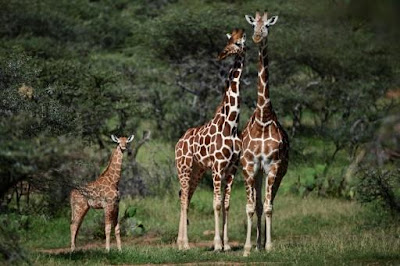Geneva
(AFP) - The regulator of global wildlife trade will impose a near-total ban on
sending African elephants captured from the wild to zoos after a final vote on
the issue on Tuesday.
Following a
heated debate at a meeting of parties to the Convention on International Trade
in Endangered Species (CITES) in Geneva, countries approved a proposed text
after a revision by the European Union watered down the ban slightly.
The
decision met with strong opposition from Zimbabwe in particular, which tried in
vain to block the vote.
But with 87
in favour, 29 against and 25 abstaining, the vote for the amended text secured
the two-thirds majority needed to pass.
The vote in
plenary altered slightly a decision decided at the start of the 12-day
conference, set to wrap up Wednesday, prohibiting the transfer of all African
elephants caught in the wild to so-called captive facilities.
Specifically,
the countries voted to limit trade in live wild African elephants only to
conservation in their natural habitats, basically ending the practice of
capturing elephants and sending them to zoos and entertainment venues around
the world.
But the EU
amendments to the text added a loophole, saying the elephants should remain in
their "natural and historical range in Africa, except in exceptional
circumstances where ... it is considered that a transfer to ex-situ locations
will provide demonstrable in-situ conservation benefits for African elephants."
The clause,
which also opened for such transfers "in emergency situations," said
the decision should only be made in consultation with the CITES Animals
Committee, and the International Union for Conservation of Nature (IUCN)
elephant specialist group.
The EU amendment
also made clear that African elephants caught in the wild and already in zoos
could be transferred to other facilities outside of Africa.
While
elephants in western, central and eastern Africa have long been listed among
the species in need of most protection under CITES, and thus banned from all
trade, some trade has been permitted in southern Africa, where elephant
populations are healthier.
Zimbabwe
has for instance captured and exported more than 100 baby elephants to Chinese
zoos since 2012, according to the Humane Society International.











